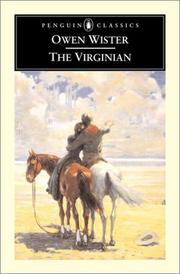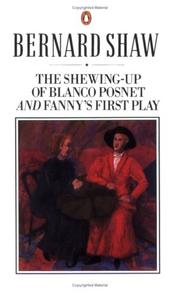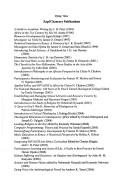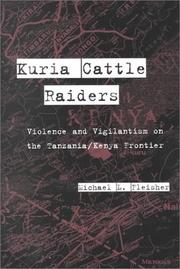| Listing 1 - 10 of 84 | << page >> |
Sort by
|

ISBN: 9780140390650 0140390650 Year: 1988 Publisher: New York (N.Y.): Penguin books,
Abstract | Keywords | Export | Availability | Bookmark
 Loading...
Loading...Choose an application
- Reference Manager
- EndNote
- RefWorks (Direct export to RefWorks)
Cattle stealing --- Vigilantes --- Cowboys
Book
ISBN: 9780230521605 Year: 2012 Publisher: New York Palgrave Macmillan
Abstract | Keywords | Export | Availability | Bookmark
 Loading...
Loading...Choose an application
- Reference Manager
- EndNote
- RefWorks (Direct export to RefWorks)
Shoplifting --- Theft --- Snatching --- Stealing --- Offenses against property
Book
ISBN: 0674069986 0674065034 9780674065031 9780674047310 0674047311 9780674069985 Year: 2012 Publisher: Cambridge, MA
Abstract | Keywords | Export | Availability | Bookmark
 Loading...
Loading...Choose an application
- Reference Manager
- EndNote
- RefWorks (Direct export to RefWorks)
Theft claims more victims and causes greater economic injury than any other criminal offense. Yet theft law is enigmatic, and fundamental questions about what should count as stealing remain unresolved-especially misappropriations of intellectual property, information, ideas, identities, and virtual property. In Thirteen Ways to Steal a Bicycle, Stuart Green assesses our current legal framework at a time when our economy increasingly commodifies intangibles and when the means of committing theft and fraud grow ever more sophisticated. Was it theft for the editor of a technology blog to buy a prototype iPhone he allegedly knew had been lost by an Apple engineer in a Silicon Valley bar? Was it theft for doctors to use a patient's tissue without permission in order to harvest a valuable cell line? For an Internet "activist" to publish tens of thousands of State Department documents on his website?In this full-scale critique, Green reveals that the last major reforms in Anglophone theft law, which took place almost fifty years ago, flattened moral distinctions, so that the same punishments are now assigned to vastly different offenses. Unreflective of community attitudes toward theft, which favor gradations in blameworthiness according to what is stolen and under what circumstances, and uninfluenced by advancements in criminal law theory, theft law cries out for another reformation-and soon.
Theft --- Snatching --- Stealing --- Offenses against property
Book
ISBN: 9780813176352 0813176352 9780813176239 0813176239 9780813176369 0813176360 Year: 2018 Publisher: Lexington, Kentucky
Abstract | Keywords | Export | Availability | Bookmark
 Loading...
Loading...Choose an application
- Reference Manager
- EndNote
- RefWorks (Direct export to RefWorks)
Shergar (Race horse) --- Horse stealing --- Theft --- Horses
Book
Year: 1691 Publisher: Dublin : Printed by Andrew Crook assignee of Benjamin Tooke, printer to the King and Queens most Excellent Majesties on Ormonde-Key,
Abstract | Keywords | Export | Availability | Bookmark
 Loading...
Loading...Choose an application
- Reference Manager
- EndNote
- RefWorks (Direct export to RefWorks)
eebo-0018
Horse stealing --- Ireland --- Ireland --- History --- History

ISBN: 0141963697 0140450254 9780140450255 Year: 2004 Publisher: Project Gutenberg
Abstract | Keywords | Export | Availability | Bookmark
 Loading...
Loading...Choose an application
- Reference Manager
- EndNote
- RefWorks (Direct export to RefWorks)
'A tearing, flaring, revivalist drama' was how Desmond MacCarthy described The Shewing-up of Blanco Posnet. Set in America's Wild West and aptly subtitled 'A Sermon in Crude Melodrama', this single-act play concerns the conversion of a horse thief desperate to 'keep the devil' in him and die game. Published in 1909, it brought Shaw into conflict with the Lord Chamberlain of England, who banned it on the grounds of alleged blasphemy, and it was twelve years before the play was performed in a London theatre. In an interview Shaw commented, 'I am sorry that Fanny's First Play has destroyed the cherished legend that I am an unpopular playwright … for the first time I have allowed a play of mine to run itself to death … And the worst of it is it will not die.' First performed in 1911, the play is a delightful farce in which Shaw debates some of his favourite subjects: middle-class morality, marriage, parents and children and women's rights. And, deliberately concealing his authorship, Shaw took the opportunity to satirize contemporary drama critics who, he claimed, 'do not know dramatic chalk from dramatic cheese when it is no longer labelled for them.'
Horse stealing --- West (U.S.) --- Theft --- Western plays
Book
ISBN: 1787446190 0861933532 Year: 2019 Publisher: Suffolk : Boydell & Brewer,
Abstract | Keywords | Export | Availability | Bookmark
 Loading...
Loading...Choose an application
- Reference Manager
- EndNote
- RefWorks (Direct export to RefWorks)
The voices of non-conformity are brought to the fore in this new exploration of late seventeenth-century politics, religion and literature.
Dissenters, Religious --- History --- Church of England. --- Nonconformist. --- Norwich. --- Sheep-stealing.
Book
ISBN: 1612091741 9781612091747 9781611224795 1611224799 Year: 2011 Publisher: New York
Abstract | Keywords | Export | Availability | Bookmark
 Loading...
Loading...Choose an application
- Reference Manager
- EndNote
- RefWorks (Direct export to RefWorks)
Financial institutions --- Commercial crimes --- Fraud --- Theft --- Embezzlement --- Defalcation --- Offenses against property --- White collar crimes --- Snatching --- Stealing --- Law and legislation

ISBN: 9966040331 9966040358 9789966040350 9789966040336 9966992537 9789966992536 Year: 2006 Publisher: Eldoret, Kenya : Zapf Chancery,
Abstract | Keywords | Export | Availability | Bookmark
 Loading...
Loading...Choose an application
- Reference Manager
- EndNote
- RefWorks (Direct export to RefWorks)
The subject of cattle-raids carried out by various nomadic communities on their counterparts is a subject of interest, intrigue and misinterpretation. What was the original purpose of cattle-raids in the concerned nomadic communities? How exactly were the raids carried out? What were the norms and taboos governing cattle-raids and wars in the traditional tribal folklore? Is cattle-raising compatible with modern society? Is it acceptable for perpetrators of modern cattle-raiding to hide behind ""tradition"" and justify their criminal activities. The above are some of the questions that inspired
Cattle stealing --- Cattle herders --- Nandi (African people) --- Cemual (African people) --- Nandi (African tribe) --- Ethnology --- Nilotic peoples --- Cowherds --- Herders

ISBN: 0472086987 0472111523 Year: 2003 Publisher: Ann Arbor University of Michigan press
Abstract | Keywords | Export | Availability | Bookmark
 Loading...
Loading...Choose an application
- Reference Manager
- EndNote
- RefWorks (Direct export to RefWorks)
Cattle herders --- Cattle stealing --- Kuria (African people) --- Domestic animals --- Economic conditions --- Social conditions --- Kenya --- Tanzania --- Social conditions.
| Listing 1 - 10 of 84 | << page >> |
Sort by
|

 Search
Search Feedback
Feedback About UniCat
About UniCat  Help
Help News
News